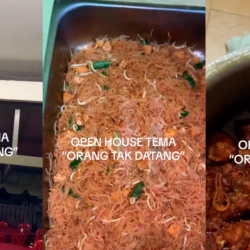UPDATE 3-Regeneron starts COVID-19 antibody cocktail late-stage trials, shares rise
(Adds analyst comments on treatment, updates share movement)
By Trisha Roy
July 6 (Reuters) - Regeneron Pharmaceuticals Inc said on Monday it has started late-stage clinical trials to assess the effectiveness of its antibody cocktail in preventing and treating COVID-19.
One of the trials - run jointly with the National Institute of Allergy and Infectious Diseases (NIAID) - would test REGN-COV2's ability to prevent infection in those who have had close exposure to a COVID-19 patient. (https://reut.rs/2O1ra93)
The trial, to be conducted across 100 sites and aims to enroll 2,000 patients in the United States, follows a positive review by an independent data monitoring committee of an early-stage safety results of the cocktail.
The experimental therapy has also entered into mid-to-late stage phase of two trials testing its effectiveness in hospitalized and non-hospitalized patients, preliminary data of which is expected later this summer. Human testing of the therapy began in June.
Regeneron is among the few front-runners that have begun human trials testing their experimental therapies to fight COVID-19, including Gilead Sciences, Eli Lilly and AbbVie.
Suntrust analyst Robyn Karnauskas believes REGN-COV2, which can also treat patients not severely ill to require hospitalization, could help curb the spread of COVID-19.
Shares of the drugmaker were up 1% at $627.42 in morning trading before the bell. They have risen nearly 66% in 2020.
Regeneron's cocktail - a combination of an antibody made by the company and a second antibody isolated from recovered COVID-19 patients - is designed to bind the antibodies to the coronavirus' spike protein, limiting the ability of viruses to move to other cells.
The drugmaker was also testing its rheumatoid arthritis drug, Kevzara, with Sanofi to treat COVID-19, which on Thursday failed to meet the main goal of a U.S. study testing it in the most critically ill COVID-19 patients.
(Reporting by Saumya Sibi Joseph and Trisha Roy in Bengaluru; Editing by Shinjini Ganguli)






